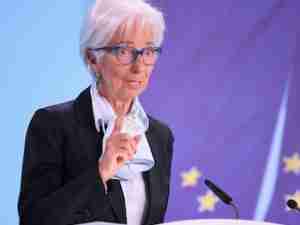Poorer nations led by India and Brazil have publicly faulted Europe and the United States for not offering enough in the nearly six-year-old talks in exchange for opening up their industrial sectors.
But many analysts believe hesitation by emerging economies over slashing the maximum duties they can impose on manufactured goods -- generally higher rates than current or "applied" tariffs -- stems from a desire to shield themselves from China, not from rich nations.
"It is definitely the elephant in the room ... They want to retain a lot of flexibility to boost their applied tariffs against China," said Gary Hufbauer, a senior fellow at the Peterson Institute of International Economics in Washington.
"I think the trade ministers understand what is really going on, and the real forces behind the scenes. The concern is about import competition from China. Politically it just resonates very well to beat up on the U.S. and Europe," he said.
David Woods, a trade analyst and former WTO spokesman, said many African and Latin American states were worried their manufacturers would not be able to keep up with China's red-hot industry.
"They are impinging enormously on the talks, in a way that I suppose could have never been foreseen when the round was launched in 2001," he said of poorer nations' China concerns.
"They (developing countries) are extremely nervous about making concessions that will actually benefit China more than any other player," he said in a telephone interview from France.
Some developing powers including Brazil are believed to be eyeing bilateral free trade deals as an alternative to lowering their buffers against Chinese goods in a global pact.
U.S. and European officials have periodically urged Beijing to use its economic muscle to try to narrow differences in the push for a deal the World Bank has estimated could add $96 billion annually to the global economy.
China, which joined the WTO at the November 2001 meeting in Qatar that launched the current talks, has maintained a low-key public approach in the Doha round. It slashed many subsidies and tariffs as part of its accession deal and is seeking a grace period to implement new cuts in a Doha pact.
The country stands to benefit more than any other from a WTO pact that opens new markets and keeps global trade flowing, given its huge export potential.
Taking account of that, Hufbauer said Beijing ought to hold itself to a tougher standard than other developing countries as a way to "put some meat on the table" at the WTO and defuse the tensions now threatening the accord.
WTO Director-General Pascal Lamy, who is pushing to conclude the Doha talks this year, has rejected suggestions China has not been active enough in the Doha round.
"China is engaged like hell in the negotiations, but their involvement does not take the same shape as the others," Lamy told journalists in Beijing last month.
"They don't do a press conference every other week to say what they want or what they don't want but still, they are very active." (Reuters)





